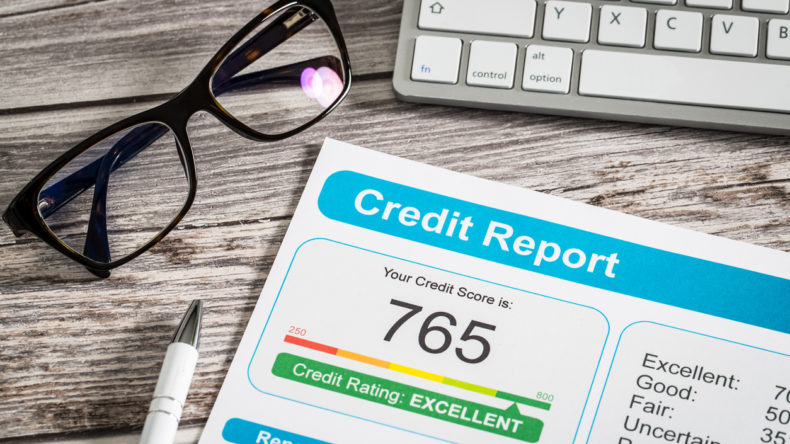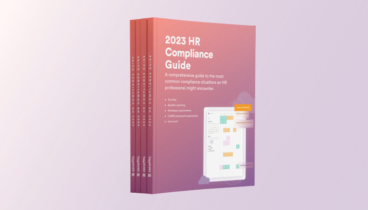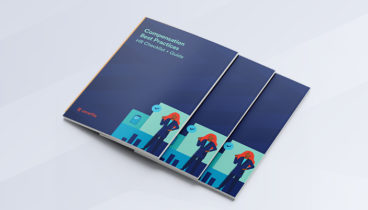While almost every state considers pre-employment credit checks legal, there is some question about the ethics behind them. Find out more here.

Here's what you need to know:
-
The theory behind the use of credit scores during the hiring process is thinking that good credit means the applicant will be more reliable and they will be less likely to commit theft against their employer
-
The reason for the question regarding the ethics of credit checks is that unexpected things happen to good people, and when those unexpected things happen, credit scores can be negatively impacted
-
The applicant must give permission for the credit check, or the employer won’t be complying with FCRA rules
-
Also, employers must inform the applicant if their credit report is going to be used negatively in the hiring process, which means the applicant can dispute or explain anything on the credit report
Legalities and ethics are not the same when it comes to hiring practices. Does a practice being legal make it ethical? That depends on the practice and the people involved.
When someone applies for a new job, it’s typical to have a potential employer run an employee background check. Some background checks are as simple as checking references and verifying skill sets. Others involve checks of criminal background. Increasingly, employers are adding credit checks to the mix.
The legalities of pulling credit reports for employment purposes
The Society for Human Resources Management conducted a survey that found that 60% of employers now run a credit check on applicants when they are in the hiring process.
Employers can see if potential employees are savvy with their money when running these checks. The question is whether those credit checks run in the course of running a background check are ethical.
Some states have made it illegal to pull credit reports on prospective employees. Hawaii and Washington, for example, have banned companies from performing credit checks on employees. In most states, though, it’s legal under federal law to perform credit checks on potential employees.
Section 604 of the Fair Credit Reporting Act is the legislation that makes using credit information for employment permissible. There is a caveat, though. Potential employees must give written permission for their credit report to be pulled.
What do credit reporting agencies provide employers?
Credit reporting agencies will not provide employers with the credit score of a prospective employee or new hire. Instead, the credit reporting agency will provide the employer with a credit report that is specifically designed for the employer.
An employer’s credit report gives information about payment habits, but it will not disclose a potential employee’s credit score.
Employers must disclose if they use information in a credit report to deny a candidate employment. The reality is that most employers find a different reason to deny a candidate employment, or they simply don’t provide a reason. Employers choose this route to avoid legal complications.
Legality versus ethics of using credit reports when hiring
With few exceptions, it’s legal for businesses to use a credit report as part of the hiring process, but the question of ethics remains. Some people fall behind on bills for a good reason.
Denying jobs based on a credit report may be unfair because it penalizes people who would otherwise be qualified to do the job based on unavoidable circumstances.
For example, an unexpected medical emergency or a layoff can cause people to land on unstable financial footing. Therefore, denying jobs based on a credit report may be unfair because it penalizes people who would otherwise be qualified to do the job based on unavoidable circumstances.
In addition to Washington and Hawaii, 16 other states are considering a ban on employer credit checks. These states consider credit checks a hurdle to climb for those who are desperate to find jobs. The states considering a ban include New York, Oregon, Ohio, and South Carolina.
The difference between a credit report versus credit score
A credit report details all of a person’s credit history which includes credit card accounts, account balances, available credit, and payment histories. A credit score is a 3-digit number that summarizes the information in a credit report as a rating.
Good scores mean a person is a reasonable credit risk and is more likely to pay back loans, but a low score means the person is a poor credit risk and is less likely to pay back a loan.
Why would potential employers check credit reports?
The number 1 reason employers cite for conducting background checks during the hiring process is to protect customers and employees. Some employers also run credit reports at that time to verify identity, background, and education.
The reports can be used to prevent theft or embezzlement or to see previous employment if a resume is incomplete. It allows employers to gauge how a candidate handles personal responsibility.
Typically, an employer runs a credit check after the decision has been made to hire a candidate. Credit is usually the last thing an employer checks.
Checking credit costs an employer time and money, so they don’t usually use credit checks to eliminate people from a large pool of potential employees. Instead, they only check the credit for those they intend to hire rather than check everyone’s credit.
Those who have applied for a financial position or one that requires dealing with money, like a cashier role, are the ones most likely to have their credit pulled.
Credit reports are also often considered when an executive position needs to be filled. Typically, criminal or identity history is more important than an applicant’s credit score.
Theories behind the use of credit scores during the hiring process
The theory behind the use of credit scores during the hiring process is good credit means the applicant will be more reliable and they will be less likely to commit theft against their employers.
The flip side of the theory is thinking that those with bad credit scores are less reliable. When considering the weight to place on credit scores, employers need to remember that things like bankruptcy, foreclosure, and divorce also make their way onto an applicant’s credit report.
However, employers don’t see an applicant’s credit score. Rather, they see information such as past job history, insurance, legal issues, open lines of credit, any late or missed payments, bankruptcies, or collections.
How does an employer credit check affect someone’s credit?
An employer credit check doesn’t affect someone’s credit score. Employer checks are like soft credit checks. Employers look at long-term credit history, typically 4 to 7 years’ worth. Even if an applicant’s recent credit history is clean, employers can ask about large discrepancies, in work history, for example.
The good news is that credit checks, as part of employment practices, have started to decline in popularity. Regulation and decreasing interest mean that fewer employers are choosing to request credit checks for potential employees.
Employees can eliminate any surprises during the hiring process by enrolling in credit monitoring programs. These help potential employees prepare for questions regarding what is reported on their credit reports.
Pre-employment credit checks may be legal but are they ethical?
A credit report for employment is technically a legal measure of someone’s ability to handle the pressure and responsibility of a job. While almost every state considers pre-employment credit checks legal, there is some question about the ethics behind them.
The reason for the question regarding the ethics of credit checks is that unexpected things happen to good people, and when those unexpected things happen, credit scores can be negatively impacted.
Employers must comply with regulations set forth by the FCRA. Whether credit checks are ethical or not, they are legal in the majority of the United States.
However, the applicant must give permission for the credit check, or the employer won’t be complying with FCRA rules. Also, employers must inform the applicant if their credit report is going to be used negatively in the hiring process, which means the applicant can dispute or explain anything on the credit report.







